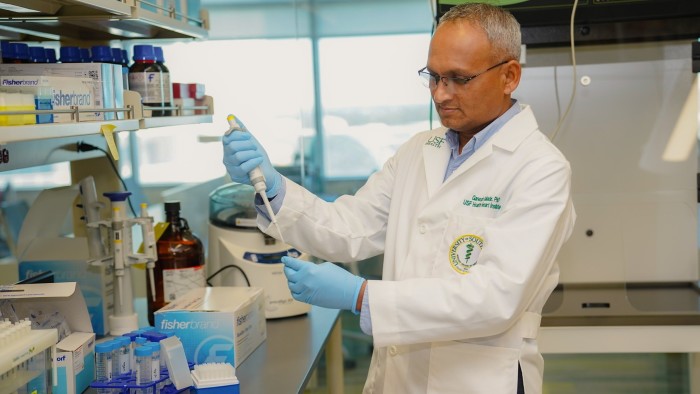Unlock the Editor’s Digest for free
Roula Khalaf, Editor of the FT, selects her favourite stories in this weekly newsletter.
Inflammation-causing fatty molecules typically contained in highly processed foods appear at elevated levels in colorectal tumours, scientists have found, pointing to a potential link between US diets and a common cancer.
The research provides a possible biological mechanism in support of previous work suggesting high consumption of so-called ultra-processed foods is associated with increased colorectal cancer risks.
The latest study published in the journal Gut on Tuesday adds to research suggesting links between UPFs and a range of health problems.
“Cancer is like a chronic wound that won’t heal,” said Timothy Yeatman, co-author of the paper and professor of surgery at the University of South Florida.
“If your body is living off . . . ultra-processed foods, its ability to heal that wound decreases due to the inflammation and suppression of the immune system that ultimately allows the cancer to grow.”
The researchers focused on trace amounts of small molecules known as lipids in 162 samples taken from cancer patients at Tampa General Hospital. The tumours were frozen within half an hour of removal and taken for analysis.
The samples contained higher levels than in healthy tissue adjacent to the tumours of lipids that cause inflammation and are common in highly processed foods. High levels of UPF consumption in the US on average meant it was reasonable to assume the lipids observed in the study came from the diet, Yeatman said.
The researchers further observed in the tumours a lack of the types of lipids that would have helped reduce inflammation, such as those found in fish and walnuts.
“A human’s immune system can be extremely powerful and drastically impact the tumour micro-environment, which is great if harnessed correctly for health and wellness,” Yeatman said. “But not if it’s suppressed by inflammatory lipids from processed foods.”
Colorectal cancer is the third most common cancer worldwide, with 1.9mn new cases and 900,000 deaths in 2022 in the 185 countries covered by the World Health Organization’s Global Cancer Observatory. Colorectal cancer rates among under-55s have been rising by between 1 and 2 per cent a year since the mid-1990s, according to the American Cancer Society.
The latest paper builds on a 2022 study which found that high consumption of UPFs by men was associated with a greater risk of colorectal cancer. Certain subgroups of UPFs were associated with an increased risk in women.
While there is no generally agreed definition of UPFs, they refer broadly to foods formulated with high levels of substances such as fats, salt and sugars that make them attractive to consumers. The food industry has hit back at research suggesting relationships between UPFs and various health conditions, saying there is a lack of evidence to prove causal links.
The debate will be even higher on the public health and political agenda should Robert Kennedy be confirmed as secretary of health and human services in the incoming administration of president-elect Donald Trump. Kennedy has blamed the food industry for surging obesity rates.
Read the full article here

